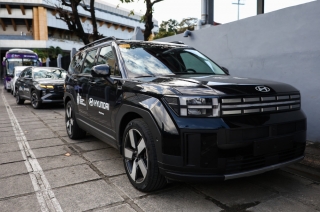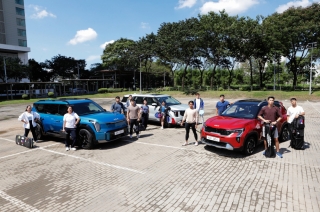
The Philippine National Police (PNP) has announced that the picking up and dropping off of authorized persons outside of residence (APORs) will be allowed amidst ECQ. However, the agency has stated that there will be a set of requirements needed for fetchers to bring with them at all times outside their homes.
For those who would like to fetch both healthcare workers and workforce APORs, they are required to present the following documents at quarantine control points:
-
Certificate of employment (COE) of the Worker-APOR from the Employer, indicating the name of the designated non-APOR driver/fetcher of the worker APOR, the make and license plate of the vehicle that will be used, as well as the contact information of the employer.
-
A copy of the business permit of the employer.
PNP chief Gen. Guillermo Lorenzo Eleazar has stated that these requirements are important, as there will be random counter-checking by policemen for these documents especially at border control points around Metro Manila. Eleazar has also said that the police will be vigilant and will be on the lookout for those using illegitimate documents.
For the enhanced community quarantine (ECQ) period from August 6 to 20, there will be three kinds of APORs that will be permitted to go out. The first is the workforce APOR while the second is customer APORs. The third group consists of those whose travels are necessary due to medical and humanitarian reasons as well as those who need to travel due to the death of an immediate relative.
The Workforce APORs are those who are in the healthcare industry and those who are employees of companies and industries that are allowed to operate during the quarantine period. They will be allowed to go out and cross borders if needed.
Customer APORs, on the other hand, are those who are allowed to avail of goods and services from companies and industries still operating under ECQ. However, these individuals will not be allowed to cross borders and can only stay within the municipalities in which they reside. With that said, it's best to stay inside during this period and to stay safe.
Latest News
-
Geely’s EX2 EV headed to Australia — is a Philippine launch possible? / News
The Geely EX2 is confirmed to go on sale in Australia in 2026. Could a launch in the Philippines also be on the cards?
-
Hyundai Motor Philippines is the FIFA Futsal Women's Teams' official mobility partner / News
Hyundai Motor Philippines strengthened its partnership with FIFA through its support of the FIFA Futsal Women's Teams.
-
Kia Philippines backs EJ Obiena as Atletang Ayala continues championing Filipino athletes / News
Kia Philippines strengthens its support for EJ Obiena, backing the Olympian with dedicated mobility at home and abroad.
Popular Articles
-
Electric Vehicles in the Philippines for under P1 million
Jerome Tresvalles · Aug 19, 2025
-
Top 3 Cars For Every Lifestyle—What Cars Are Right For You? | Behind a Desk
Caco Tirona · Apr 24, 2024
-
5 Tips to Maximize Fuel Efficiency
Jerome Tresvalles · Sep 09, 2024
-
Five driving habits that are draining your fuel tank
Jerome Tresvalles · Jun 24, 2025
-
Can engine braking harm your engine?
Jerome Tresvalles · Sep 11, 2025
-
Do electric cars even need maintenance?
Jerome Tresvalles · Oct 23, 2024
-
Best vehicles for an active outdoor lifestyle
Shaynah Miranda · Jul 25, 2024
-
How to drive different types of vehicle transmissions
May 23, 2024
-
5 easy ways to keep your car interior clean
Allysa Mae Zulueta · Nov 15, 2021
-
How to survive Metro Manila traffic
Earl Lee · Aug 16, 2022



